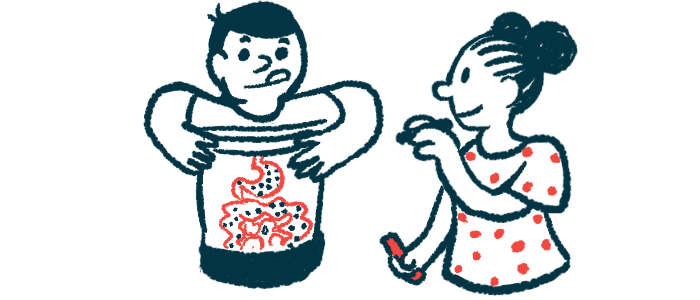BL-001, targeting gut microbes, found safe in healthy volunteers
Phase 1 trial tested experimental ALS, Dravet syndrome therapy BL-001
Written by |

BL-001, an investigational gut-targeted therapy being developed for people with amyotrophic lateral sclerosis (ALS) and Dravet syndrome, was found to be safe and well tolerated among healthy volunteers in a Phase 1 clinical trial.
Findings overall indicate that Bloom Science‘s BL-001 can be given safely to humans at doses up to 10 times more than what was needed for efficacy in animal models, according to the company.
Bloom now is planning to launch Phase 2 trials involving people with ALS and Dravet syndrome, a rare form of pediatric epilepsy, in 2024.
“BL-001 shows promise as a novel treatment option that can change lives,” Paolo Baroldi, MD, PhD, chief medical officer of Bloom, said in a press release. “With these results we plan to proceed into Phase 2 clinical development with doses we expect to be within the therapeutic window in both Dravet syndrome and ALS.”
BL-001 was designed based on a growing body of evidence suggesting there is a so-called gut-brain axis, where alterations in the gut microbiome — the collection of bacteria, virus, and fungi in the gastrointestinal tract — can influence brain function.
As such, the microbiome could be a therapeutic target for neurological diseases like ALS and Dravet.
“By taking a breakthrough approach to therapeutic development via the Gut-Brain Axis, we believe Bloom has the potential to develop completely novel, transformational treatments with superior safety and efficacy profiles that can have a significant impact on the lives of the patients suffering from rare diseases,” said Christopher Reyes, PhD, founder and CEO of Bloom.
BL-001 contains human gut microbes
BL-001, developed using the company’s proprietary IrisRx platform, contains two live bacteria found in the human gut that are believed to be beneficial for neurological function.
It was developed initially to mimic the anti-seizure effects of the ketogenic diet that’s used to treat Dravet syndrome. Essentially, it works to restore a more normal balance of nerve-signaling chemicals, preventing the excessive nerve cell firing that causes seizures. Imbalances in these nerve-signaling chemicals also can be seen in ALS.
In preclinical studies, the treatment was found to ease oxidative stress, a key cellular process implicated in ALS. Oxidative stress arises when there is an imbalance in toxic reactive oxygen species and the antioxidant molecules needed to combat them, leading to cellular damage and degeneration.
By preventing this process, Bloom believes the therapy could slow or halt ALS disease progression. Indeed, BL-001 was found to prevent motor nerve cell loss, improve motor coordination, and prolong survival in preclinical ALS studies, according to the company.
The Phase 1 trial (NCT05818306) was designed to evaluate the safety and tolerability of BL-001 among healthy volunteers at a single site in Switzerland. A total of 32 adults, ages 18-55, were assigned to receive one of four oral doses of BL-001, or a placebo, daily for about a month.
Favorable safety profile
BL-001 demonstrated a favorable safety profile, with no serious adverse events observed across all four dose groups and no side effects requiring intervention or leading to study withdrawal.
The most common side effect associated with the highest dose was decreased appetite, seen in three of six patients. This was the only side effect that persisted throughout the study for two participants, but resolved after treatment ended for the two affected individuals.
No clinically significant cardiac abnormalities were observed.
The growth of the bacteria in the gut, as assessed by fecal samples, was favorable and increased in a dose-dependent manner.
“This milestone builds on many years of groundbreaking work that validate Bloom’s IrisRx platform and ability to select [bacterial] strains optimized for both safety and activity,” Reyes noted.
Bloom previously received funding from the ALS Association to advance BL-001’s development.






